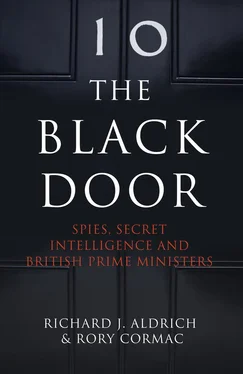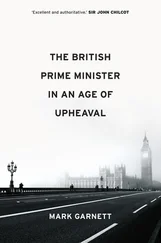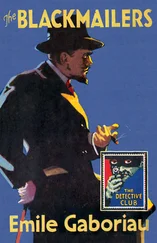Overseas, MI6 remained weak. The majority of important international intelligence instead came from a revival of codebreaking. For at least a decade before 1914, the War Office had plans to recreate a codebreaking centre if a military crisis occurred, and both the army and navy did so independently in August 1914. Although they initially cooperated, differences developed in both personality and approach, rendering any harmony short-lived. Nonetheless, they still managed to break German, French and American codes, alongside a host of other streams of high-level communications. Starting from scratch in 1914, this was an amazing feat. The Admiralty’s famous codebreaking unit, codenamed ‘Room 40’, was the more effective; directed by Reginald ‘Blinker’ Hall, it pioneered many of the scientific methods used by Bletchley Park two decades later.42
The First World War may have transformed British intelligence collection, but Asquith still took little interest. The prime minister was in fact deeply uninterested in war, strategy or intelligence, although he found time for bridge, lavish dinner parties and country weekends. He was not lacking in energy or application, but his focus was elsewhere, not least on his mistress Venetia Stanley, more than thirty years his junior. Asquith wrote to her over five hundred times during his period as war leader, sometimes as often as three times a day. The qualities that had made him a good peacetime prime minister were unhelpful in wartime. He was an affable chairman of the board, able to reconcile differences of opinion and find compromises. But he failed to appreciate the value of some of his partners in the wartime Liberal–Conservative coalition, and above all he failed to take hard decisions that were required for the vigorous prosecution of the war. He offered little guidance and support to the military, which was then led by Field Marshal Lord Kitchener.43
Intelligence proved important in the context of Ireland. Again, however, Asquith seemed broadly unaware of troubling developments, and instead engaged intermittently with particular incidents. The British had failed to properly penetrate the dissident movement, so human sources inside Ireland were few, and their reports fragmented and contradictory.44 Consequently, little warning of the 1916 Easter Rising came through these channels. Room 40 provided more solid intelligence. Decrypted secret German cables from America gave important intelligence on the international activities of Irish nationalists, including details relating to the Rising, during which Berlin assisted the exiled Irish nationalist Roger Casement in fomenting rebellion. Casement’s dealings were not news to the prime minister. Although the flow of intelligence to Downing Street was patchy, Asquith had enjoyed a stream of incriminating material on Casement.45 What appeared to be an intelligence bonanza turned out to have come from an untrustworthy source, Casement’s bisexual manservant and lover, who was ‘a liar, a blackmailer and a fantasist’. When Casement found out about his betrayal he publicly (but falsely) alleged a British plot to murder him. Although the incident embarrassed Asquith’s government, it was enough for MI5 to open a file on Casement and unearth more details of his nationalist scheming – and ultimately his German connections.46
Room 40 intercepted more than thirty cables dealing with German assistance to Ireland during the first two years of the war.47 The codebreakers not only gave full warning of the Easter Rising, but also revealed Germany’s plans to send weapons to Ireland in an attempt to divert British attention from the Western Front, allowing the Royal Navy to intercept a German U-boat carrying Casement to Ireland and the arms shipment to be captured. The signals intelligence, though, was only sent to a small military circle. It seemingly did not reach the politicians, even Asquith.48 Nor did it reach the authorities in Dublin. The sorry episode reflects the perennial problem of using signals intelligence: it is difficult to do so without compromising the source, thereby leading to a reluctance to share, even inside Westminster. More intriguingly, there is evidence that the British authorities deliberately allowed the Easter Rising to go ahead in order to justify repression of the Irish dissidents. Under interrogation, Casement offered to publicly call off the rebellion, but this was declined. Instead, he was told that ‘it’s a festering sore’, and it was ‘much better it should come to a head’.49 Either way, the Easter Rising failed.
Despite the work of Room 40, Asquith experienced the rebellion as ‘a real bolt from the blue’ – albeit one with a ‘comic side’.50 His wife Margot confessed in her diary that ‘none of us had any idea what had really happened’.51 Upon hearing the news of the Easter Rising, and in the midst of a conscription crisis, the prime minister simply said, ‘Well, that’s something,’ and went to bed. Intelligence seemingly had little impact in Number 10. Such nonchalance belies Asquith’s growing interest in Irish affairs, which had been a key issue in the months prior to war. He subsequently took on the office of Irish secretary himself, and headed off to Dublin to try unsuccessfully to sort things out.52 General John Maxwell, appointed by Asquith to force a military solution on a political problem, drew on Special Branch intelligence to persuade the prime minister that the case against every executed rebel leader had been overwhelming.53
They included Roger Casement. Partly because signals intelligence had thoroughly convinced the authorities of his treacherous links with Germany, Casement was hanged in Pentonville Prison in August 1916. To counter calls for clemency, the ‘Casement Diaries’, containing what were regarded as shocking descriptions of Casement’s homosexual exploits, were leaked by Blinker Hall to influence the trial. Previously, many Irish nationalists had mistakenly insisted that these diaries were forgeries.54 This episode underlines the long history of the selective use of intelligence to influence public opinion.
Meanwhile, the seemingly directionless war strategy left the cabinet unimpressed. Discontent also arose over the quality of information reaching them. Asquith had formed an ultimately unpopular coalition government, with Andrew Bonar Law as his Tory partner. In early September 1915, Bonar Law pressed the prime minister to make changes to the leadership of the war effort. He sought the resurrection of a General Staff at the War Office, with the hope that this would result in better strategic advice to cabinet. Nothing was done until 22 September, when Kitchener was conveniently absent. The Tories then took the lead and insisted on a smaller and more active War Council, together with the provision of better intelligence to cabinet by the General Staff. Asquith was finally forced to write to Kitchener, insisting on an improved flow of intelligence to the centre. He appointed General Archibald Murray as the new Chief of the Imperial General Staff, but beyond that none of the suggested reforms were implemented, and Asquith did not follow up on the cabinet’s requests for more intelligence.55
The Asquith coalition government disintegrated in late 1916, as a result of its own incompetence and disorder. Lacking personal authority, Asquith had spent much of his time assembling factions and alliances. There was little planning, and astonishingly, letters sent by the prime minister to the King after each meeting formed the only record of cabinet discussions. When Bonar Law joined the coalition in 1915 he had been amazed by the lack of any method or even agenda for cabinet meetings. The failure of the Gallipoli campaign at the start of 1916 accelerated the decline of the Asquith government. Mercifully for the war effort, in June 1916 Lord Kitchener, the aged secretary of state for war, died at sea off the Orkneys in mysterious circumstances, an event that many attributed to a bewildering mixture of German, Irish or Russian saboteurs. He was replaced by the energetic David Lloyd George. At the end of the year, however, both Asquith and Lloyd George resigned in short order, while Bonar Law declined to form a government. Lloyd George became head of a new coalition two days later, establishing a Supreme War Council. Neither Asquith nor Bonar Law was mentally equipped to handle the range of decisions required by modern war. The main challenge for Lloyd George, now and for the rest of the war, was to try to wrest strategic control of the conflict from the military chiefs, a task that he never quite completed.56
Читать дальше












